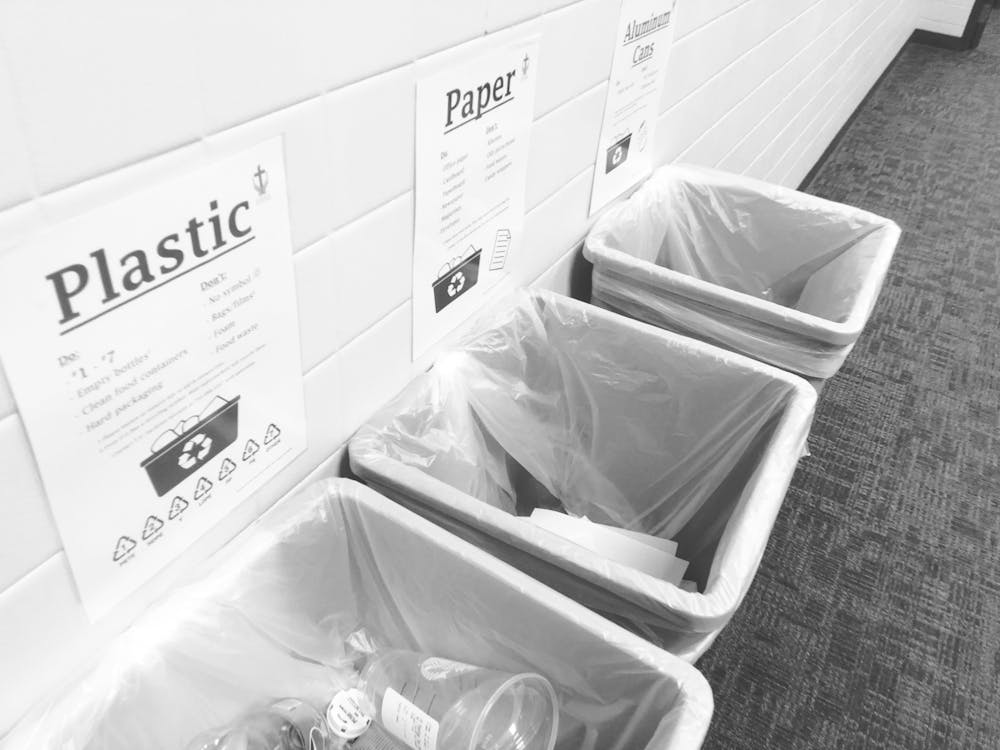“As soon as people start to care, then something can happen,” said sophomore Noah Riggs.
Caring is the catalyst for environmental change. Taylor students can begin by changing small behaviors to practice sustainable living.
Perhaps, it is easy to feel overwhelmed by the sheer magnitude of the crumbling ecosystem, but every small step contributes to several strides forward over time.
“Just pick one little thing and change it,” said Assistant Professor of Sustainable Development Phil Grabowski. “It takes about three weeks or four weeks to develop a habit.”
Students can start with one small change today: bringing a mug to get coffee at the Jumping Bean instead of using paper cups, turning off the lights in dorm rooms, biking or walking instead of driving, bringing bags to the grocery store, reducing food waste, reusing plastic containers from the LaRita Boren Campus Center, taking shorter showers or simply committing to recycling.
If students make a Walmart run, they should look for products that are not as highly processed and have less packaging, Riggs said. As a result, there will be less waste after using the product and the student can better conserve the energy that was put into making it.
Grabowski also noticed the rewarding effects to being environmentally conscious. For example, by keeping the thermostat down in his home, he saves electricity and money.
“A lot of these sustainability issues can really be win-wins where you're saving money and you're improving Creation,” Grabowski said.
Junior Kara Head made the choice to stop using cotton. Instead of removing makeup or nail polish with cotton, Head uses pieces of cloth which she simply washes as needed.
She also supports thrift shopping as a fun way to recycle clothing. As college students, most people may not have enough money to invest in ethical companies like Patagonia, which tend to be expensive. Instead, thrifting is both trendy and environmentally friendly.
“It's also fair trade simply because you're not putting more money into the companies that are using unethical labor,” Head said.
Caring for the environment is not only a matter of stewarding everything given by the Lord, it is also fulfilling the command given in Mark 12:31, “The second is this: ‘You shall love your neighbor as yourself.’ There is no other commandment greater than these.”
Disregard for the environment in one part of the world means an increase in human suffering in another. Consumption of cheap products usually results in the exploitation of laborers. Someone has to absorb the cost.
A useful website that gives companies a letter grade based on their sustainability and human rights performance is betterworldshopper.org
Everything comes with a price, but the question is who pays for it?
“To love your neighbor is both a local thing and a global thing. From my understanding of scripture, everyone on this planet is my neighbor,” said Associate Professor of Computer Science and Engineering Jeff Cramer.
Caring for the environment looks different for every person, but truly it is an act of love for neighbors near and far. Simply put, caring matters.




